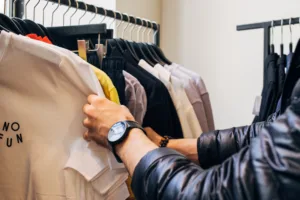Fashion brands are using the most online trackers for advertising, and sharing significant amounts of data with third parties, according to a new index launched by Empathy.co.
The Retail Trust Index (RTI) highlights that the UK’s leading retailers are each using 10 separate trackers on average, with over 50% of these trackers sharing information with third parties for advertising.
The RTI identifies the worst offender as JD Sports. The sports fashion retailer is followed by Wickes, Adidas, Clarks, and Selfridges in the top five brands with the most trackers. On the other hand, the retail brands identified as using the least online trackers are Morrisons, Waterstones, Harrods, B&M, Co-op, and Wilko.
Alongside the index, Empathy.co consumer research found that just 19% of UK consumers trust the nation’s leading retailers, with 69% feeling cookies and other online trackers are intrusive, and 50% changing their online shopping habits to avoid retailers tracking their purchases through cookies.
Moreover, while 60% of UK consumers know online retailers are tracking their online browser history, 50% of them believe that retail brands aren’t doing enough to protect them online. Meanwhile, 70% feel their personal data is more secure when they shop in-store, and 62% would avoid online tracking activities altogether by shopping in stores.
Notably, the most trusted retail brands tend to be supermarkets – a number of which are featured in the lower end of online tracker usage.
“The Retail Trust Index lays bare the extensive use of online trackers in the retail sector. The continued use of such intrusive practices are having a clear and detrimental impact on retail brands’ relationship with consumers online,” said Angel Maldonado, CEO of Empathy.co. “With almost 20% of consumers not trusting any of the UK’s leading retail brands, it’s clear that consumers simply don’t trust retailers. As retail becomes an increasingly digital industry, a new approach is needed to restore trust before it is irrevocably damaged.”
The top 10 brands that use the most trackers:
- JD Sports
- Wickes
- Adidas
- Clarks
- Selfridges
- B&Q
- John Lewis
- Iceland
- Sports Direct
- TK Maxx
The retail brands using the least number of online trackers:
- Morrisons, Waterstones
- Harrods, B&M, Co-op, Wilko
- HMV, H&M
- Hugo Boss, Disney Store, Holland & Barrett, Tesco, Nike, Lidl
- House of Fraser, Calvin Klein, Specsavers












